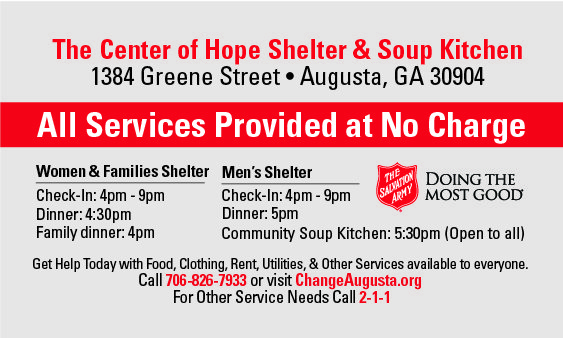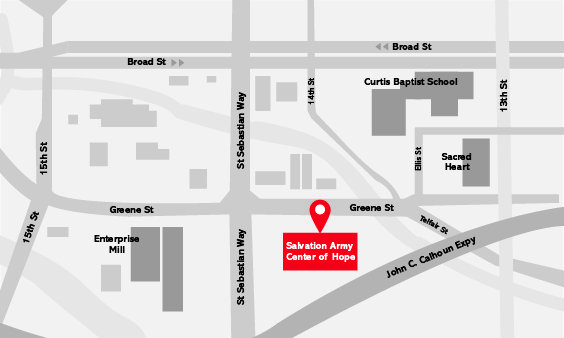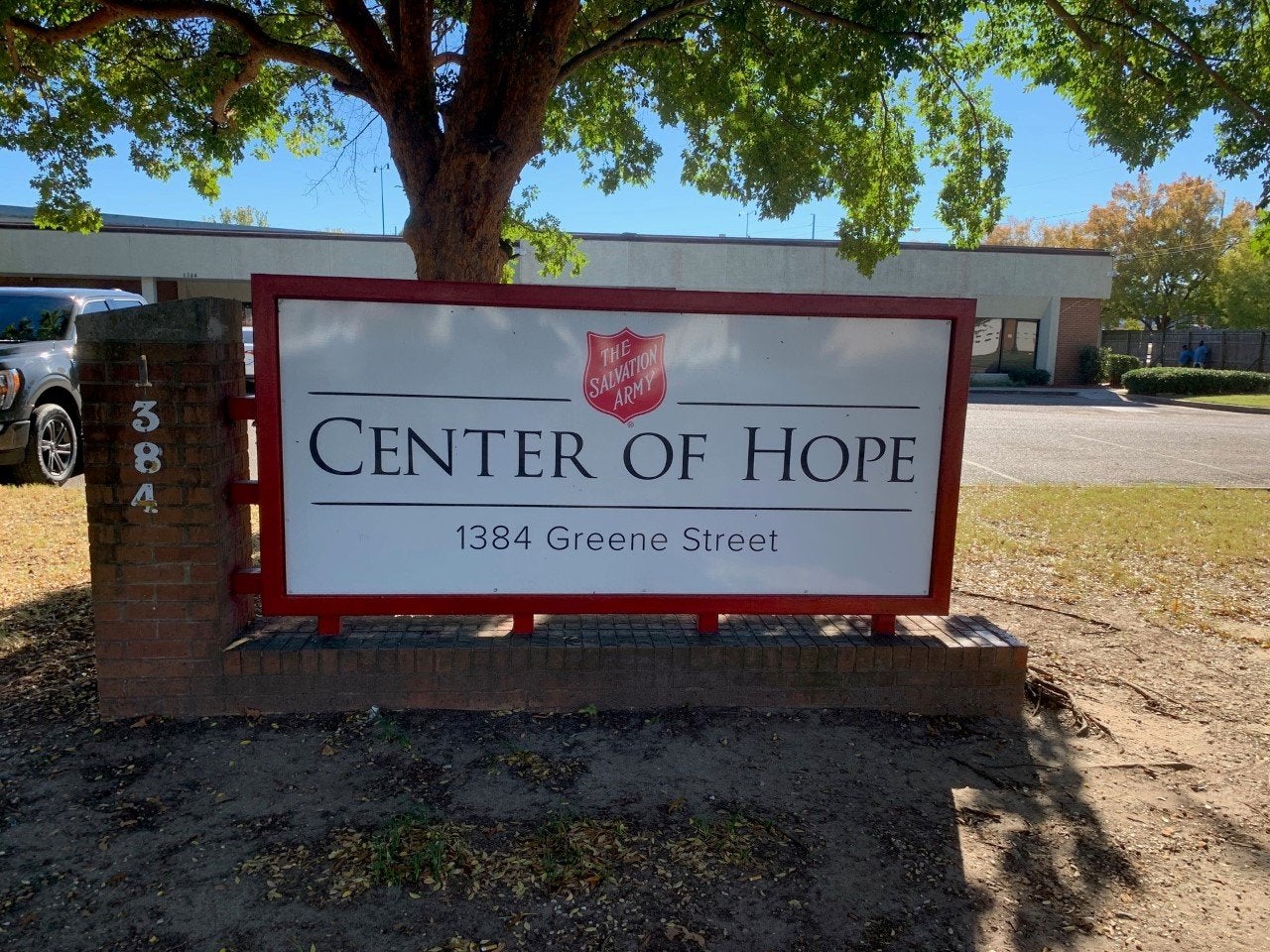The Salvation Army has long advised against the public giving money to homeless people who beg at gas stations, outdoor cafes and street corners. Now, it is launching a new effort to curtail panhandling in the form of a simple card.
The business card-sized pieces of paper are being distributed through the Kroc Center and are being given out to business owners downtown who routinely have homeless people loitering near their shops.
MORE: Groups Split Up the Search for Answers to Homelessness in Augusta
One side of the card lists all of the free services provided by the Salvation Army including food, shelter and help with utilities. The other side of the card is a free bus ticket to the Center Of Hope shelter on Greene Street.


The cards were designed and are being supplied to the Salvation Army free of charge by TranterGrey Media.
According to director of development for the Salvation Army, Derek Dugan, many times, homeless people will try to gain sympathy by telling their panhandling targets that shelters are trying to raise the $5 fee to stay in the homeless shelter. However, Dugan said that is a ruse as the shelter does not charge people to be allowed to stay.
[adrotate banner=”54″]
Dugan said handing the cards to someone panhandling is a polite way to potentially help the homeless person and avoid contributing to a destructive lifestyle.
“No one in Augusta has to be homeless; we have the resources to help people. No one should be sleeping on the streets,” Dugan said.
MORE: Researching How Other Cities Deal with Homelessness
According to Dugan, the Salvation Army conducts a yearly count of the homeless population in Augusta, but the numbers are nowhere near empirical. Dugan said a rough estimate would be north of 800 people.
“Those numbers do not account for people sleeping on couches and people temporarily staying with family members,” Dugan said.
However, despite the staggering numbers, the Salvation Army has experienced success in providing individuals and families escape the life of desperation on the streets. According to Dugan, the Salvation Army successfully found permanent homes for 49 people in 2020 and 48 so far this year.
Dugan said it normally takes an average of 72 days to help a homeless person or family get settled into a permanent home. Finding affordable housing is only one part of the challenge.
“We have to take it on a case by case basis. A lot of it is the background issues we have to clean up. We have to make sure they don’t have outstanding bills that will stop them being able to hook up utilities. People who haven’t paid their child support have their driver’s licenses revoked, and we have to help them work through that so they can get a job and support themselves,” Dugan said.
Despite the fact that the shelter on Greene Street stays at maximum capacity on most nights, the Salvation Army has been able to reconfigure the facility so that families are not separated within the facility. Dugan said the Salvation Army considers its efforts to build a new facility top priority, but the effort will take time.
Dugan said that his steering committee is working diligently to craft a strategic plan for a new shelter which involves finding a location and developing a capital funding project. Over the next three months, the Salvation Army will hold several community forums to gain citizen input at the Kroc Center.
According to Dugan, the study will include input from the homeless population as well.
“The key takeaway is that our study will determine the current and future needs. If our study determines we have an increase in homeless families — which I think it will — then we will design the new facility accordingly,” Dugan said.
Scott Hudson is the Senior Reporter for The Augusta Press. Reach him at scott@theaugustapress.com








